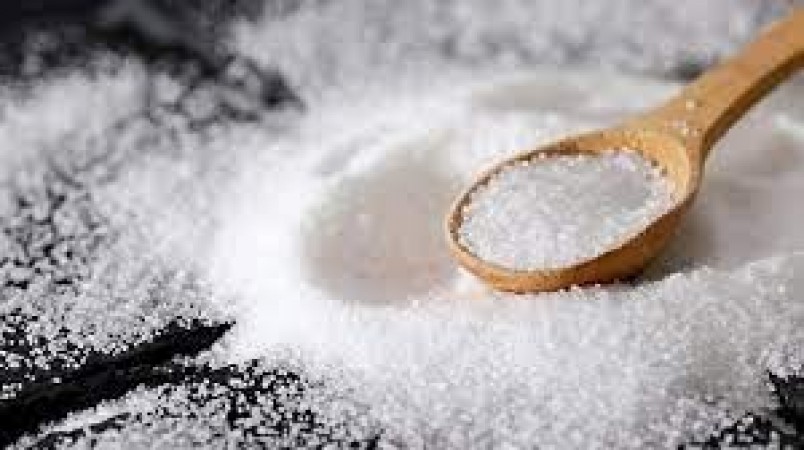
In a world where fast-paced lifestyles often dictate our dietary choices, the alarming rise in salt consumption has become a cause for concern. While salt is a ubiquitous ingredient in our daily meals, excessive intake has been linked to serious health issues. Let's delve into the repercussions of overindulging in this seemingly innocuous seasoning.
Salt, or sodium chloride, is an essential component of our diets, playing a crucial role in various physiological functions. However, when the delicate balance is disrupted, it can lead to health complications. It is crucial to understand that not all salt is created equal; excessive consumption of highly processed table salt is where the problem lies.
Health experts recommend a daily sodium intake limit to maintain optimal health. The World Health Organization suggests a maximum of 5 grams (about one teaspoon) of salt per day for adults. Exceeding this limit can pave the way for various health woes, making it imperative for individuals to be mindful of their salt intake.
One of the most significant consequences of excessive salt intake is its link to hypertension, often referred to as the "silent killer" due to its asymptomatic nature. Hypertension is a condition where the force of the blood against the walls of the arteries is consistently too high, putting extra strain on the heart.
High salt levels can lead to increased blood pressure, creating a cascade of events within the cardiovascular system. The heart, tasked with pumping blood throughout the body, experiences heightened pressure, potentially leading to various cardiovascular diseases, including heart attacks and strokes.
The kidneys, responsible for filtering waste and excess fluids from the blood, play a crucial role in regulating sodium levels. However, overconsumption of salt can strain these vital organs, contributing to kidney diseases. Persistent high sodium levels may lead to impaired kidney function, posing long-term health risks.
Salt's ability to retain water in the body can result in edema, a condition characterized by swelling, particularly in the extremities. This occurs as the excess sodium disrupts the balance of fluids, leading to fluid retention. Edema can be uncomfortable and may indicate underlying health issues related to salt intake.
Processed and packaged foods often harbor high salt content. The convenience of these foods, coupled with busy lifestyles, has led to an increase in salt consumption. Being mindful of food labels is essential in curbing salt intake. Ingredients such as monosodium glutamate (MSG) and sodium nitrate are commonly used additives that significantly contribute to the sodium content of processed foods.
Exploring herbs and spices as salt substitutes is a practical and health-conscious approach to enhance the taste of meals without compromising well-being. Herbs like basil, rosemary, and thyme, along with spices such as cumin and turmeric, can add depth and flavor to dishes without relying on excessive salt.
Cutting back on salt doesn't have to be a drastic, all-or-nothing endeavor. Gradual reduction allows taste buds to adjust to lower sodium levels, making the transition more sustainable. Individuals can start by reducing the amount of salt used in cooking and gradually eliminating the habit of adding extra salt to meals.
Raising awareness about the dangers of excessive salt intake is paramount. Public health campaigns play a crucial role in educating individuals about the impact of salt on health. Providing accessible information about hidden sources of salt and its health implications empowers people to make informed choices regarding their dietary habits.
Empowering individuals to make healthier choices involves providing them with tools and resources. Cooking classes, nutritional workshops, and online resources can equip individuals with the knowledge needed to make informed decisions about their diets. Understanding the nutritional value of foods and how to read food labels can be instrumental in adopting a low-sodium lifestyle.
Communities play a vital role in fostering a culture of healthier living. Collaborative efforts, such as community gardens and shared recipes for low-sodium meals, can contribute to the collective well-being. By promoting a supportive environment for healthy habits, communities can significantly impact the dietary choices of their members.
In the quest for flavorful meals, we must not undermine the potential health hazards associated with excessive salt intake. Striking a balance and adopting a mindful approach to our dietary habits is pivotal in safeguarding our well-being. As individuals, communities, and societies at large, we hold the key to reducing the silent menace of excessive salt consumption and paving the way for healthier, more fulfilling lives.
Is there lack of water in the body or not? You can check like this...
Use jamun kernels in hair, it will become dense
Adopt These Dietary Changes, and Cancer Won't Stray Near You